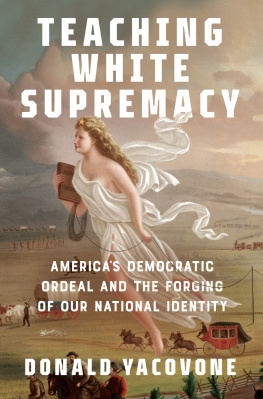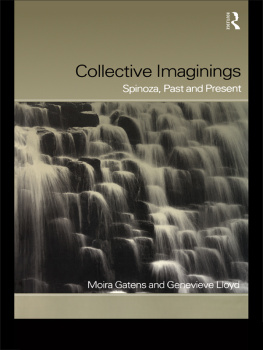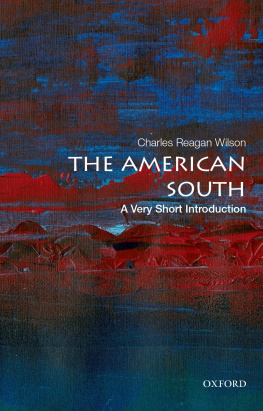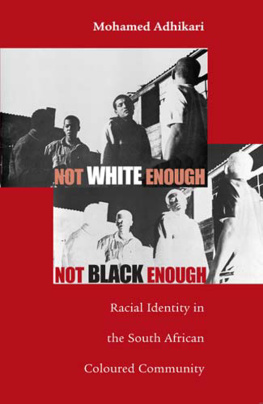The South of the Mind

SERIES EDITORS
Bryant Simon, Temple University
Jane Dailey, University of Chicago
ADVISORY BOARD
Lisa Dorr, University of Alabama
Grace Elizabeth Hale, University of Virginia
Randal Jelks, University of Kansas
Kevin Kruse, Princeton University
Robert Norrell, University of Tennessee
Bruce Schulman, Boston University
Marjorie Spruill, University of South Carolina
J. Mills Thornton, University of Michigan
Allen Tullos, Emory University
Brian Ward, University of Manchester
The South of the Mind
AMERICAN IMAGININGS OF WHITE SOUTHERNNESS, 19601980
Zachary J. Lechner

2018 by the University of Georgia Press
Athens, Georgia 30602
www.ugapress.org
All rights reserved
Set in Minion Pro and Proxima Nova by
Graphic Composition, Inc., Bogart, Georgia
Most University of Georgia Press titles are available from popular e-book vendors.
Printed digitally
Library of Congress Cataloging-in-Publication Data
Names: Lechner, Zachary J., 1979- author.
Title: The South of the mind : American imaginings of white southernness, 19601980 / Zachary J. Lechner.
Other titles: Politics and culture in the twentieth-century South.
Description: Athens : The University of Georgia Press, [2018] | Series: Politics and culture in the twentieth-century South | Includes bibliographical references and index.
Identifiers: LCCN 2018008667 | ISBN 9780820353715 (hardcover : alk. paper) | ISBN 9780820353906 (pbk. : alk. paper) | ISBN 9780820353708 (ebook)
Subjects: ISBN: Southern StatesCivilization. | Southern StatesHistory1951
Classification: LCC F209 .L43 2018 | DDC 975dc23 LC record available at https://lccn.loc.gov/2018008667
For Sarah
CONTENTS
The South of the Mind
INTRODUCTION
Raising the White South
Richard N. Goodwin seemed like an unlikely booster of the South. A Jewish Bostonian, he had served as an advisor and speechwriter for two U.S. presidents, John F. Kennedy and Lyndon B. Johnson. He was perhaps best known for his participation in the federal governments painful efforts to force the Deep South to desegregate in the early to mid-1960s. Nonetheless, in 1972, he was an enthusiasticand the sole nonsoutherncontributor to a collection of essays on the present-day South titled You Cant Eat Magnolias. The book was a product of the L. Q. C. Lamar Society, an organization composed of southern politicians, writers, journalists, and business leaders dedicated to creating a positive postsegregation future for their region in the midst of a continued economic boom.
Goodwins piece, The End of Reconstruction, sought to recover a usable southern past, one that rejected racist practices and looked to southern rural traditions as a model for the rest of the nation. In doing so, Goodwin designated his imagined South as the antithesis to modern American society. Depicting a United States that was confused, divided, and in turmoil, the Bostonian asserted that what America hungers for is not more goods or greater power, but a manner of life, restoration of the bonds between people that we call community, a philosophy which values the individual rather than his possessions, and a sense of belonging, of shared purpose and enterprise.
Goodwins sentiments about the liberating disposition of southern culture may have appeared surprising coming in the aftermath of the tumultuous southern civil rights movement. During this period, news coverage had often cast white southerners as villains. Yet a diverse group of other Americans, ranging from novelist Harper Lee to rock critic Lester Bangs, echoed Goodwins views during the 1960s and 1970s, celebrating the white South as a purported repository of discarded values. A variety of individuals during and after the civil rights era, including writers, journalists, filmmakers, musicians, and politicians, imagined the white South as a tradition-loving, communal, authenticand often, but not always, rural or small-townregion that both represented a refuge from modern ills and contained the tools for contesting them. These perceived problems consisted of anomie, spiritual decline, flagging masculinity, racial disturbance, governmental deceptions, division over the Vietnam War, and technocratic overreach. In such fantasies, white southerners emerged as antithetical to modern man: close to the land, exhibiting a manly toughness, driven by commonsense thinking rather than the demands of technology and the dictates of outside experts. This fantasied South also inevitably included familism, in the word of Earl Hamner Jr., the creator of the hugely popular drama The Waltons (19721981), a CBS television series about a close-knit white family in rural Virginia during the Great Depression and World War II. While commentators bemoaned the decline of the American family in the late 1960s and 1970s, they calculated the white southern family unit as exceptionally strong.
Such imaginings typically used the white South, couched in largely male or masculine terms, as a critique of mainstream American culture. The source of that corrupt culture, it seemed, could be either urban or suburban. Obviously, urban and suburban life differ vastly, but in the popular media of the 1960s and 1970s, observers frequently presented the increasing violence of inner cities and the cultural homogenization of the suburbs as intermingled poisons, both withering the bonds of the traditional or natural American existence. In the end, the urban-suburban distinctions lacked a difference; the South of the Mind could serve as an antidote for both sets of ills. To be sure, conceptions of the white South were unusual and powerful tools for expressing discontent in the 1960s and 1970s.
Such fantasies about the South occurred in a specific historical moment, as Americans encountered a society hemmed in on all sides by political and cultural unrest. In a book that attempted to assess the Souths role within the nation in the early 1970s, southern journalist John Egerton repeated this common refrain of an uncertain America, its people confused, searching for misplaced values, and desperate for relief. We are too shellshocked to be outraged anymore, he claimed. Assassinations and riots and Vietnam and the campus revolts and the drug scene and crime in the streets and crime in the corporations and crime in the government are just too much to grasp. It takes no nostalgic longing for the good old days, no disdain for progress, no pessimistic nature, to see a tragedy of historic proportions gathering on the horizon. The America of righteousness and certitude and invincibility is up against some problems that dont have ready solutions and questions that dont have easy answers.
In the midst of these disorienting changes and Americas self-questioning, Egerton was not as hopeful (or deluded) as Richard Goodwin about the Souths capacity to save the nation, because he was convinced that the region was increasingly becoming like the rest of the homogenized and commercialized nation. Egerton applauded what he considered the waning of the Souths overt racism, but he feared the loss of the moonlight and magnolias, the courtesy and kinship, the friendliness and hospitality, the importance of things personal and concrete, the sense of pace and place and space and grace and soul that he and others ascribed to the region. While Egerton rejected a timeless, unchanging South, such a perception did appeal to other cultural producers and analysts who thought of the region not as a victim of U.S. consumer culture but rather as an asylum from it.
Next page






